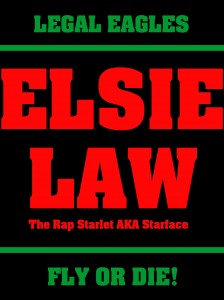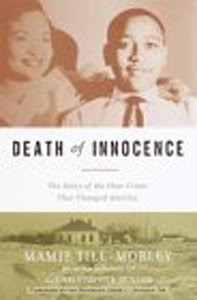 John Albert Burr invented an improved rotary blade lawn mower. He also improved the design of the lawn mower by making it possible to mow closer to building and wall edges.
John Albert Burr invented an improved rotary blade lawn mower. He also improved the design of the lawn mower by making it possible to mow closer to building and wall edges.
Black History Fact Of The Day
Quote Of The Day
The Fly Or Die Commerce Report: “Air Pocket Stock” Defined
 According to Investopedia: An Air Pocket Stock is: “A stock that experiences a sudden drop, similar to a plane hitting an air pocket. Air pocket stocks are usually the result of investors reacting to negative news…An air pocket stock isn’t necessarily in dire straits. More often than not, the abrupt, drop caused by disgruntled investors is usually the end of the correction.”
According to Investopedia: An Air Pocket Stock is: “A stock that experiences a sudden drop, similar to a plane hitting an air pocket. Air pocket stocks are usually the result of investors reacting to negative news…An air pocket stock isn’t necessarily in dire straits. More often than not, the abrupt, drop caused by disgruntled investors is usually the end of the correction.”
Black History Fact Of The Day
Quote Of The Day
Anecdote: “How often do you let other people’s nonsense change your mood?”
“How often do you let other people’s nonsense change your mood? Do you let a bad driver, rude waiter, curt boss, or an insensitive employee ruin your day? Unless you’re the Terminator, for an instant, you’re probably set back on your heels. However, the mark of a successful person is how quickly she/he can get back her/his focus on what’s important.
Five years ago I learned this lesson. I learned it in the back of a taxicab in Indianapolis. Here’s what happened:
I hopped in a taxi and we took off for Indianapolis Airport. We were driving in the right lane when, all of a sudden, a black car jumped out of a parking space right in front of us. My taxi driver slammed on his breaks, skidded, and missed the other car’s back end by just inches! The driver of the other car, the guy who almost caused a big accident, whipped his head around and he started yelling bad words at us. My taxi driver just smiled and waved at the guy. And, I mean, he was friendly. So, I said, ‘Why did you just do that? This guy almost ruined your car and sent us to the hospital!’ And this is when my taxi driver told me what I now call, ‘The Law of the Garbage Truck.’
“Many people are like garbage trucks. They run around full of garbage, full of frustration, full of anger, and full of disappointment. As their garbage piles up, they need a place to dump it. And if you let them, they’ll dump it on you. When someone wants to dump on you, don’t take it personally. You just smile, wave, wish them well, and move on. You’ll be happy you did.
“So this was it: The ‘Law of the Garbage Truck.’ I started thinking, how often do I let Garbage Trucks run right over me? And how often do I take their garbage and spread it to other people: at work, at home, on the streets?
It was that day I said, ‘I’m not going to do it anymore.’ I began to see garbage trucks. Like in the movie ‘The Sixth Sense,’ the little boy said, ‘I see Dead People.’ Well, now ‘I see Garbage Trucks.’ I see the load they’re carrying. I see them coming to drop it off. And like my taxi driver, I don’t make it a personal thing; I just smile, wave, wish them well, and I move on.
Good leaders know they have to be ready for their next meeting. Good parents know that they have to welcome their children home from school with hugs and kisses. Leaders and parents know that they have to be fully present, and at their best, for the people they care about. The bottom line is that successful people do not let Garbage Trucks take over their day. What about you?
What would happen in your life, starting today, if you let more garbage trucks pass you by?
You’ll be happier. Life’s too short to wake up in the morning with regrets, so love the people who treat you right. Pray for the ones who don’t.
Believe that everything happens for a reason. If you get a chance, TAKE IT! If it changes your life, LET IT! Nobody said it would be easy. They just promised it would be worth it!” -Author Unknown
Black History Fact Of The Day
 A.G. Gaston was a phenomenal business man. He owned an insurance company, a hotel, and educational institutions. He was also the first Black person to own a financial institution in Birmingham, Alabama. His success was infectious. Mr. Gaston’s wife emerged as a successful entrepreneur, selling beauty products.
A.G. Gaston was a phenomenal business man. He owned an insurance company, a hotel, and educational institutions. He was also the first Black person to own a financial institution in Birmingham, Alabama. His success was infectious. Mr. Gaston’s wife emerged as a successful entrepreneur, selling beauty products.
A.G. Gaston wrote an autobiography. He is also the subject of a biography entitled, “Black Titan.”
Quote Of The Day
Book Excerpt Of The Week- Part 2, “Death Of Innocence: The Story Of The Hate Crime That Changed America” By: Mamie Till-Mobley
 It is oft repeated lore that Emmett Till inappropriately whistled at a white woman. However, the excerpt from his mother’s tome, printed below, contains the seldom told history of what likely caused the “Emmett Till whistle.”
It is oft repeated lore that Emmett Till inappropriately whistled at a white woman. However, the excerpt from his mother’s tome, printed below, contains the seldom told history of what likely caused the “Emmett Till whistle.”
“Although it was a great relief to learn that Emmett hadn’t lost any of his motor skills, it wasn’t long before we noticed a related problem. It was devastating to us. Emmett’s bout with polio had caused some muscle damage after all. He was left with a speech defect. He sttutered. It was especially bad when he got excited or nervous. It could just take over at times in those early days. Nobody could understand him. Nobody but Mama and me. We knew what this could mean and we refused to accept it. We were very proud people, and we didn’t want anything to stand in the way of Emmett’s success. We didn’t want him held back because of people’s prejudices, because they might hear him speak and think he had limitations…
He could improve his speech by practicing, by memorizing and reciting. That would be my solution.
So that’s when the pileup began. Poor kid, I had him memorizing everything from the preamble to the Constitution to Lincoln’s Gettysburg Address to poetry, everything I knew he was going to encounter. That way, when he’d come across all of this material again, he would already be ahead of everybody else. I felt so sorry for him, because my list of stuff never ran out. I mean, by the time he had learned one, I was on him with another one. And I had him doing all the gestures, all the expressions. He was good, too.
I was working him so hard, he had to take a time-out. ‘Mama, you’re gonna have to let me come up and breathe,’ he would say.
He was very pleased with himself, though. And it seemed to help. It proved to him that, once he was certain of something, he could go ahead and execute. But there was something else. I noticed that in pacing himself for the recitation, he would have to control his breathing. That’s when it occurred to me to give him a bit of advice.
‘If you find yourself stuck on a word,’ I said, ‘take a breath, whistle, and then go ahead and speak.’ He tried it, and it seemed that when he whistled, it was almost a hypnotic cue that would calm him, steady his breathing, and allow him to finish what he had started to say.” -From, “Death Of Innocence: The Story Of The Hate Crime That Changed America” By: Mamie Till-Mobley
Book Excerpt Of The Week- Part 1, “Death Of Innocence: The Story Of The Hate Crime That Changed America” By: Mamie Till-Mobley
 “Emmett Louis Till, my only son, my only child, was kidnapped, tortured, and murdered at the hand of white racists on August 28, 1955. That was so many years ago, yet it seems like only yesterday to a mother who needs no reminders. After all, every shattered piece of my heart has its own special memory of Emmett.
“Emmett Louis Till, my only son, my only child, was kidnapped, tortured, and murdered at the hand of white racists on August 28, 1955. That was so many years ago, yet it seems like only yesterday to a mother who needs no reminders. After all, every shattered piece of my heart has its own special memory of Emmett.
They say there are lessons to be learned from every experience in life. It has taken practically all my life to sort out the lessons here. I couldn’t see how there might possibly be any good to come of something so evil. What could the lesson have been? How could anyone deserve this? Then there was there was the mistreatment, the indifference of those who I thought really cared, the betrayal by those I trusted, the injustice at the hands of the justice system.
It has taken all these years of quiet reflection to recognize the true meaning of my experience, and Emmett’s. It took quite a while for me to accept how his murder connected to so many things that make us what we are today. I didn’t see right away, but there was an important mission for me, to shape so many other young minds as a teacher, a messenger, an active church member. God told me, “I took away one child, but I will give you thousands.”. He has. And I have been grateful for that blessing.
That’s why, for forty-seven years, I wasn’t quite ready to write this book. It took a long time for me to reach this kind of deep understanding. I have been approached, oh, so many times by people who wanted to tell my story or put words in my mouth to tell their version of my story. But I just couldn’t do that. I owe Emmett more than that. I owe him the absolute understanding I finally have come to appreciate; the deep understanding of why he lived and died and why I was destined to live so long after his death. You see my story is more than the story of a lynching. It is more a story of how, with God’s guidance, I made a commitment to rip the covers off Mississippi, USA- revealing to the world the horrible face or race hatred. It is more than the story of how I took the privacy of my own grief and turned it into a public issue, one which set in motion the dynamic force that led ultimately to a generation of social and legal progress for this country. My story is more than all of that. It is the story of how I was able to pull myself back from the brink of desolation, and turn my life around by digging deep within my soul to pull hope from despair, joy from anguish, forgiveness from anger, love from hate. I want people to know all of that and how they might gain some useful understanding for their own lives from my experience. But I also want people to know my Emmett, the way they might have known him had they met him so many years ago- as the driven, industrious, clever boy that he was at age fourteen. Forever fourteen.” -From, “Death Of Innocence: The Story Of The Hate Crime That Changed America” By: Mamie Till-Mobley


